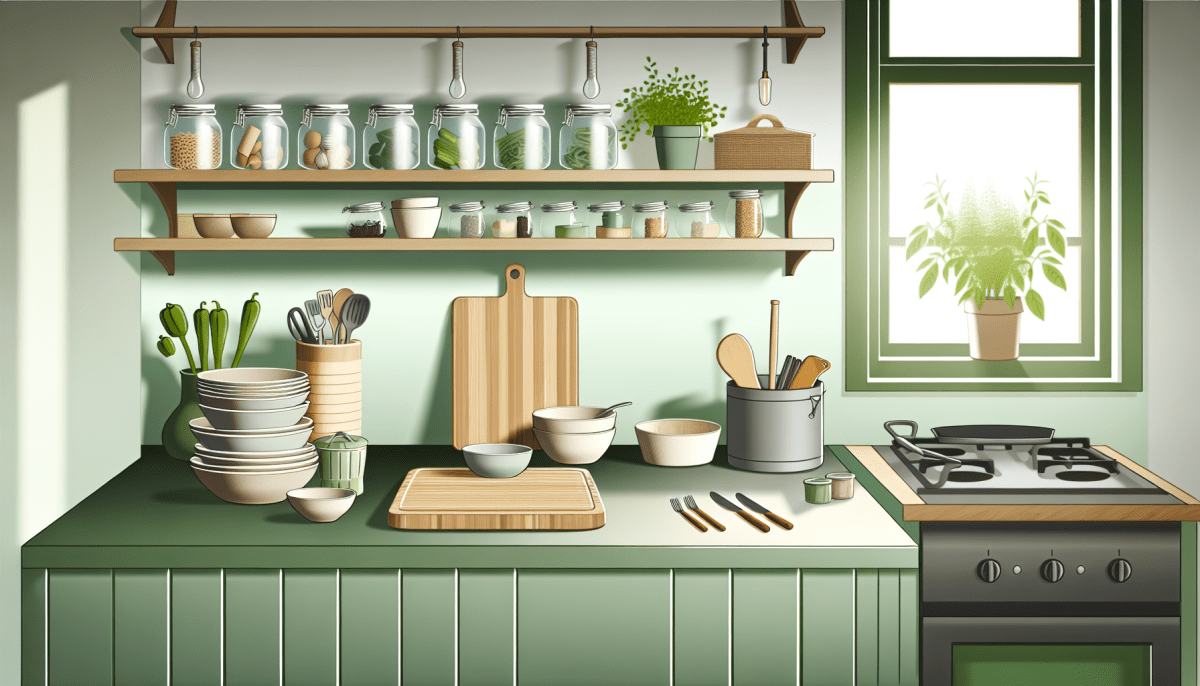When it comes to creating an eco-friendly cooking space, the cookware you choose can make a significant impact. Sustainable cookware not only helps reduce your carbon footprint but also promotes healthier cooking practices. Opting for materials that are environmentally friendly and durable is essential for nurturing both your kitchen and the planet.
One excellent option for sustainable cookware is cast iron. Cast iron pans are incredibly durable and can last a lifetime if properly maintained. They provide excellent heat retention and distribution, allowing you to cook meals efficiently. Additionally, when seasoned correctly, cast iron cookware develops a natural non-stick surface without the harmful chemicals found in synthetic non-stick coatings. Plus, cast iron is recyclable, making it a great choice for those who want to minimize waste.
An alternative to cast iron is stainless steel, which is another eco-friendly choice. Stainless steel is non-reactive, meaning it won’t leach chemicals into your food and can withstand high cooking temperatures. It's also highly durable and can be recycled at the end of its lifespan. Look for high-quality, food-grade stainless steel options that are built to last and free from harmful additives.
Another trend gaining popularity is the use of bamboo and other sustainable wood materials for utensils and cookware. Bamboo grows quickly and is highly renewable, making it a fantastic eco-friendly option. Bamboo utensils are not only beautiful but also lightweight and durable. They do not scratch your non-stick surfaces and are easy to clean. Additionally, opting for glass cookware can reduce reliance on plastic, further supporting a sustainable kitchen ethos.
Energy Efficient Appliances
When setting up your eco-friendly cooking space, one of the most impactful choices you can make is selecting energy-efficient appliances. These appliances don’t just help reduce your carbon footprint; they can also save you money on utility bills in the long run. Look for products that carry the ENERGY STAR label, as they meet strict energy efficiency guidelines set by the U.S. Environmental Protection Agency.
Energy-efficient refrigerators, ovens, and dishwashers are designed to use less electricity and water while still providing the performance you expect. For example, newer models of refrigerators are equipped with improved insulation and advanced compressor technology, which keeps your food fresh without consuming excessive energy. Similarly, energy-efficient ovens often feature convection cooking options, allowing them to cook food more evenly while using less energy than traditional models.
Don't overlook smaller appliances, either. Many countertop gadgets, like slow cookers and electric kettles, have energy-efficient varieties that can significantly lower your energy usage. These devices use less power compared to their larger counterparts, making them ideal for small meals or quick cooking tasks. By choosing wisely, you can create a cooking space that’s both functional and sustainable.
Transitioning to energy-efficient appliances not only benefits your home but also contributes to a larger movement towards sustainable living. Each appliance you replace is a step towards a healthier planet. As you curate your cooking space, consider how each choice aligns with your environmental values and the overall impact it has on global energy consumption.
Eco-Friendly Storage Solutions
Start by investing in reusable storage containers made from glass or stainless steel instead of plastic. These materials are not only durable but also free from harmful chemicals that can leach into your food. Glass jars, for instance, are perfect for storing grains, spices, and dried herbs. They allow you to see the contents easily and encourage bulk buying—further reducing packaging waste.
Consider utilizing vertical space to maximize your kitchen’s efficiency. Installing shelves or using hanging racks can free up counter space and keep utensils and spices within easy reach. Opt for wooden shelves made from reclaimed materials for a rustic touch that aligns with eco-friendly values. Additionally, magnetic strips are a great way to store knives and other metal tools, keeping them organized and safely accessible while adding an industrial flair to your kitchen decor.
Ditch disposable bags and wraps by incorporating reusable cloth alternatives. Beeswax wraps and fabric sacks are excellent for storing leftovers, covering bowls, or wrapping sandwiches. They eliminate single-use plastic from your kitchen and contribute to a more sustainable lifestyle. These simple changes can make a significant difference in your waste footprint and inspire others in your household to embrace eco-friendly habits.
Natural Cleaning Products
One of the most popular natural cleaning agents is vinegar. Its acidic properties help to cut through grease and grime, making it perfect for cleaning countertops and appliances. You can mix equal parts of vinegar and water in a spray bottle for a simple, all-purpose cleaner. Not only does it clean effectively, but it also neutralizes odors, leaving your kitchen smelling fresh.
Baking soda is another versatile natural cleaner. This gentle abrasive can tackle tough stains and eliminate odors in your refrigerator, kitchen drains, and even your stovetop. A paste made from baking soda and water can be used to scrub away baked-on food without scratching surfaces. Plus, it's non-toxic and safe for use around children and pets.
Essential oils can also elevate your natural cleaning routine by providing pleasant scents and additional antibacterial properties. Oils like tea tree, lavender, and lemon oil can be added to your vinegar or baking soda solutions for an inviting fragrance while boosting their cleaning power. Not only will your kitchen sparkle, but it will also smell delightful, creating a warm and welcoming atmosphere for your culinary adventures.

